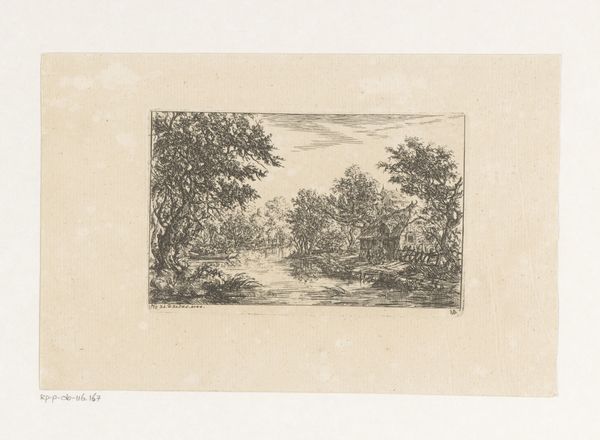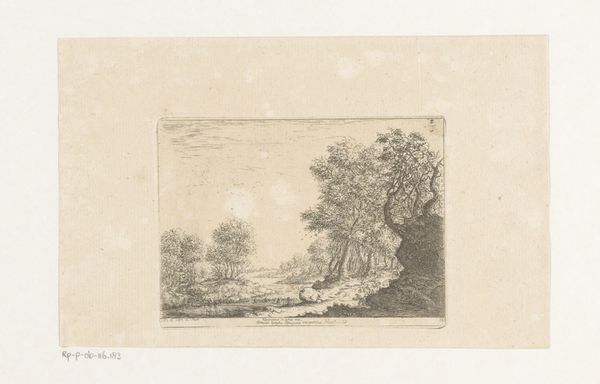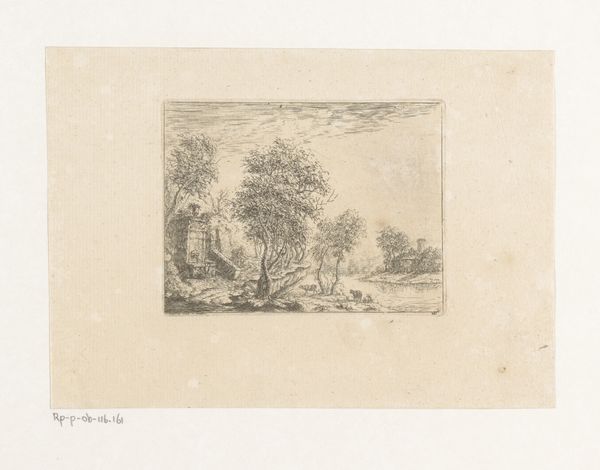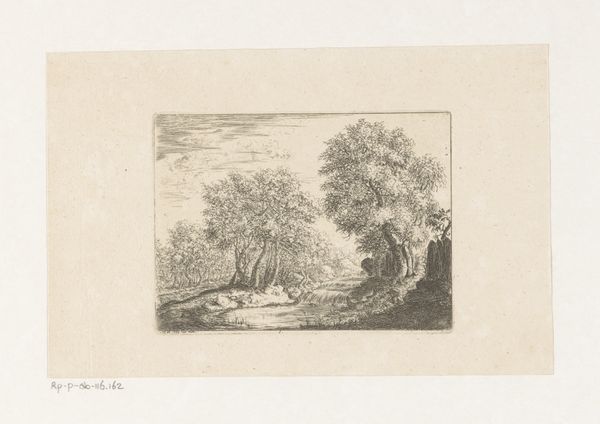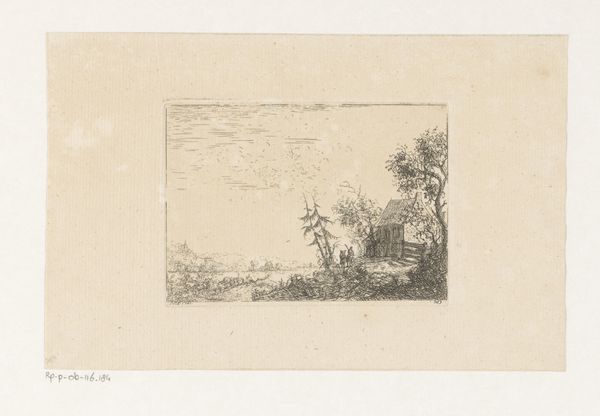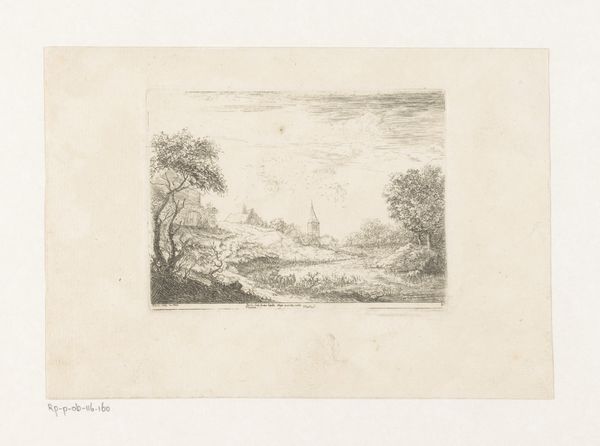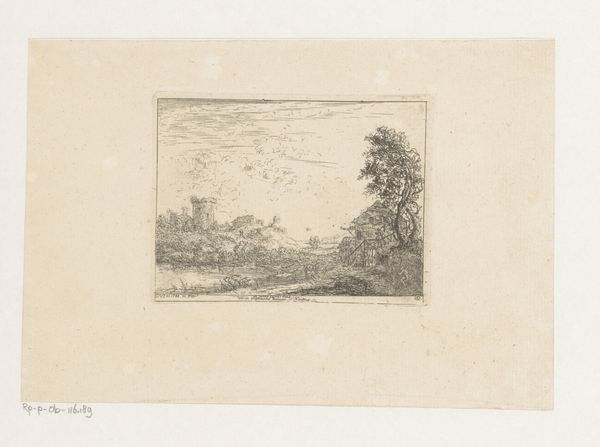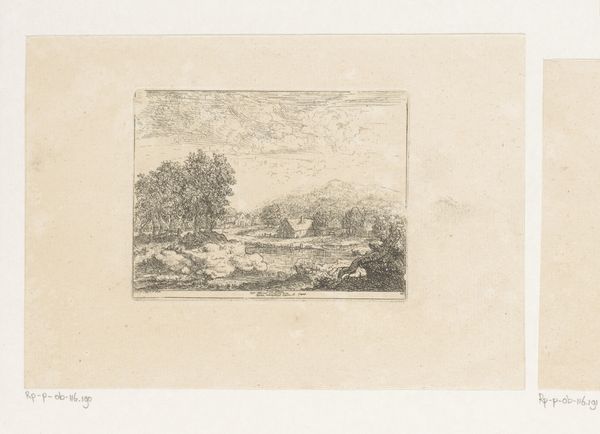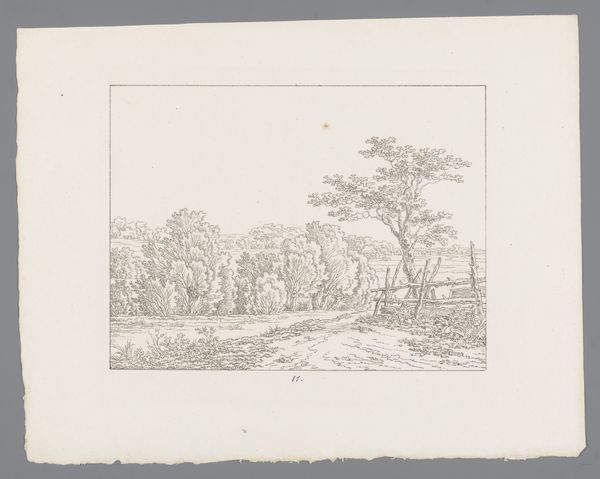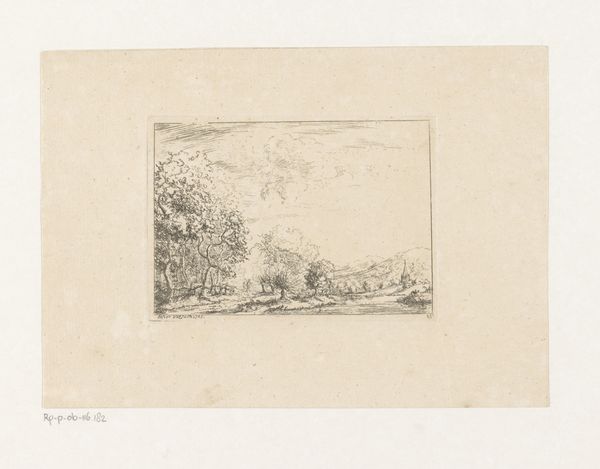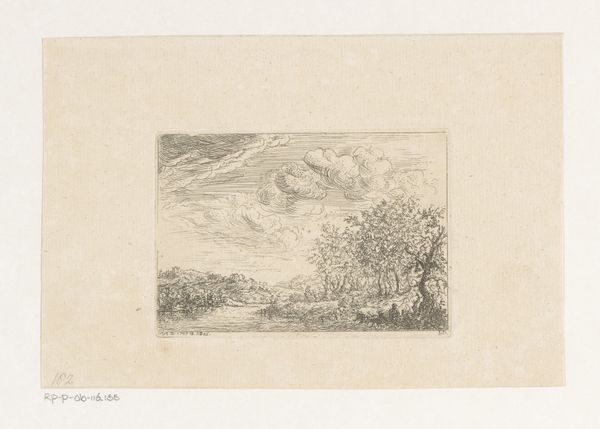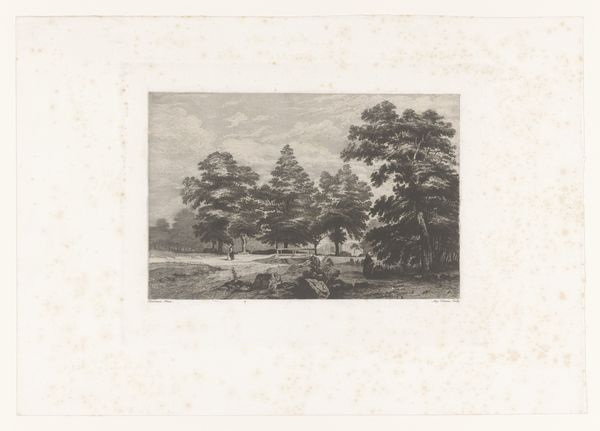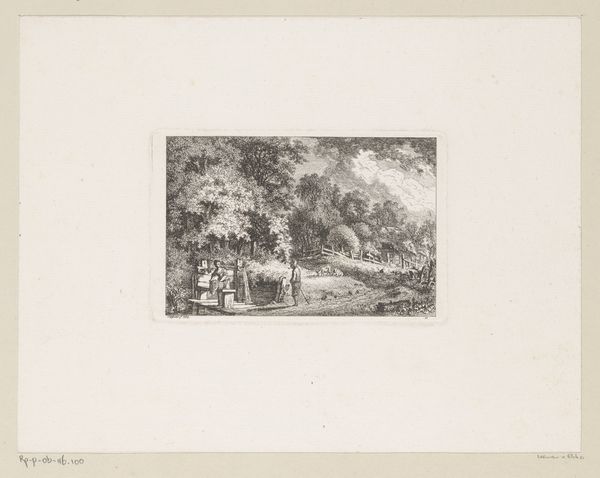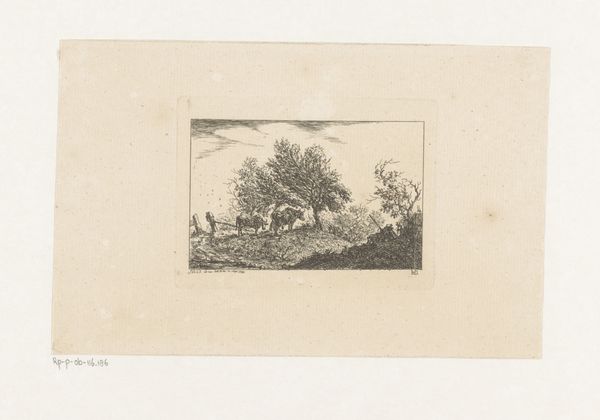
print, etching
#
baroque
# print
#
etching
#
landscape
#
line
Dimensions: height 97 mm, width 131 mm
Copyright: Rijks Museum: Open Domain
This is Christian Ludwig von Hagedorn’s "River Landscape with House on the Shore," an etching. The printmaking process requires working with a metal plate, likely copper in this case, carefully coating it with a waxy, acid-resistant ground, then drawing an image through the ground with a pointed tool, exposing the metal. The plate is then submerged in acid, which bites into the exposed lines, creating grooves. The deeper the bite, the more ink it will hold. Once the ground is removed, the plate is inked, wiped clean, and pressed against a sheet of paper, transferring the ink from the etched lines. Here, Hagedorn’s marks are delicate, yet the scene feels robust. The etching process is well-suited to capturing the textures of nature: the thatched roof, foliage, and rippling water. The labor-intensive printmaking process, requiring skill and precision, stands in contrast to the humble, everyday scene depicted. It asks us to consider the value of both labor and leisure in the 18th century. By taking something seemingly ordinary, and immortalizing it through this print, Hagedorn reminds us of the special relationship between art, craft, and the world around us.
Comments
No comments
Be the first to comment and join the conversation on the ultimate creative platform.
